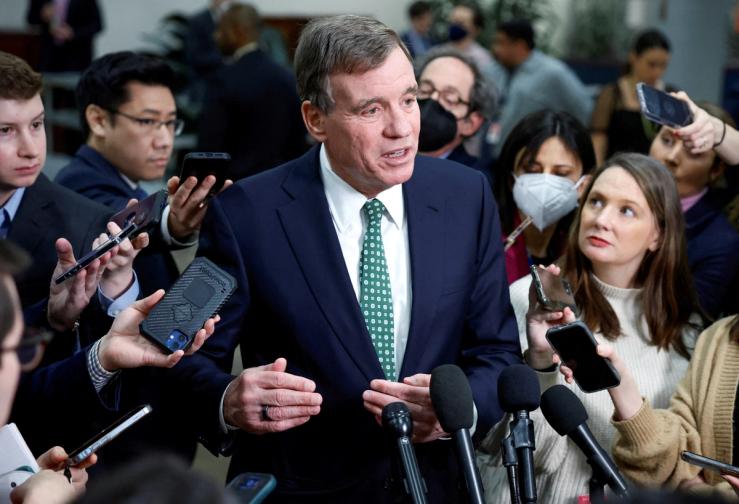The News
A bipartisan group led by Sens. Mark Warner, D-Va. and John Thune, R-S.D. introduced legislation Tuesday that would give the Biden administration new authorities to review and potentially ban technology products from adversarial nations on national security grounds. The legislation is backed by the White House.
Know More
The legislation represents the latest effort on Capitol Hill by lawmakers to address national security concerns associated with popular social media app TikTok. The bill proposed by Warner, who chairs the powerful Senate Intelligence Committee, and Thune is broader, however.
The bill, known formally as the Restricting the Emergence of Security Threats that Risk Information and Communications Technology (RESTRICT) Act, would create a new framework for the Commerce Department to review, mitigate threats from, and potentially block information and communications technology from foreign countries like China.
“We lack at this moment in time a holistic, interagency, whole-of-government approach,” Warner said at a press conference.
The bill may have a good chance of passing due to the broad bipartisan support in the Senate — it has a dozen cosponsors — and White House backing.
White House national security adviser Jake Sullivan voiced support for the bill in a statement Tuesday.
“This legislation would empower the United States government to prevent certain foreign governments from exploiting technology services operating in the United States in a way that poses risks to Americans’ sensitive data and our national security,” Sullivan said.
He added that White House officials “look forward to continue working with both Democrats and Republicans on this bill, and urge Congress to act quickly to send it to the President’s desk.”
Step Back
Lawmakers from both parties have expressed concerns due to TikTok’s China-based owner, ByteDance. Last year, Congress voted to ban the popular video app from government devices.
“The truth is with 100 million Americans daily on TikTok on an average of 90 minutes a day, this is an issue,” Warner said at the news conference. “We’ve got to make sure that we take care of that national security-based concern.”
TikTok has insisted that the Chinese government has no direct or indirect control over TikTok and ByteDance, and has made the rounds in D.C. to brief lawmakers in recent weeks.
“A U.S. ban on TikTok is a ban on the export of American culture and values to the billion-plus people who use our service worldwide,” TikTok spokeswoman Brooke Oberwetter said in a statement. “The Biden Administration does not need additional authority from Congress to address national security concerns about TikTok: it can approve the deal negotiated with CFIUS over two years that it has spent the last six months reviewing.”
The House Foreign Affairs Committee advanced a bill last week introduced by its chairman, Rep. Michael McCaul, R-Texas, that would allow the Biden administration to ban TikTok and other foreign-owned entities in the U.S. and impose sanctions on companies linked to them. The measure faced opposition from Democrats who view it as overbroad, and from the American Civil Liberties Union, which argued it would violate free speech rights.
Another bipartisan measure to ban TikTok has been offered by the leaders of the new House select committee on China and Sen. Marco Rubio, R-Fla., who is the top Republican on the Senate Intelligence Committee.


